Team

Institute for Sustainable
Urbanism
Prof. Dr. Vanessa Miriam Carlow
Pockelsstraße 3, 12. OG
Braunschweig, Germany

College of Architecture &
Urban Planning
Prof. Dr. Li Zhenyu
Siping Road 1239 Yangpu
Shanghai, China
Institute for Sustainable Urbanism
TU BRAUNSCHWEIG
Prof. Dr. Vanessa Miriam Carlow
Pockelsstraße 3, 12. OG
Braunschweig, Germany
![]() isu@tu-braunschweig.de
isu@tu-braunschweig.de

Prof. Dr. Vanessa Miriam Carlow, Project Lead
Director of ISU
Spokesperson Future Cities Core Research Area

Grace Abou Jaoude
Subproject: SCENARIO
g.abou-jaoude@tu-braunschweig.de

Olaf Mumm, Project Coordinator
Deputy Director of ISU
o.mumm@tu-braunschweig.de

Majd Murad
Subproject: TOPOI
majd.murad@tu-braunschweig.de
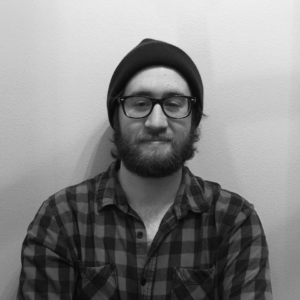
Ryan Zeringue
Subproject: TOPOI
r.zeringue@tu-braunschweig.de
Institute for Sustainable Urbanism
TU BRAUNSCHWEIG
Prof. Dr. Vanessa Miriam Carlow
Pockelsstraße 3, 12. OG
Braunschweig, Germany
![]() isu@tu-braunschweig.de
isu@tu-braunschweig.de
“Sustainable Urbanism” These two words represent the biggest challenge and the biggest hope of our generation. The Institute for Sustainable Urbanism (ISU) seeks to explore, co-design, engineer, and promote all strata of sustainable development.
Cities play a crucial role in confronting the challenges of real sustainability in our collective future. By sustainability we mean the long-term viability of our society, encompassing factors such as the social and economic flourishing of people, responsible resource-consumption, livability of the habitat, and the thriving of the natural environment. By urbanism we mean all of the systems, members, and forces, visible and invisible, which constitute today’s interconnected, globalized society.
Cities, after all, are the biggest consumers of natural resources, including human, and also some of the most vulnerable places threatened by climate change. But they are the nexus of power, influence, human and natural resources, culture, ideas, and creativity. As such, cities are key sites of opportunity in making steps toward real sustainability.
College of Architecture & Urban Planning
TONGJI UNIVERSITY
Prof. Dr. Li Zhenyu
Siping Road 1239 Yangpu
Shanghai, China
![]() zhenyuli@tongji.edu.cn
zhenyuli@tongji.edu.cn

Prof. Dr. LI Zhenyu, Project Lead
Dean of CAUP
SP Lead: TOPOI, SCENARIO, NETWORK

Prof. Dr. DONG Nannan, Project Coordinator
SP Lead: TOPOI, SCENARIO, NETWORK
dongnannan@tongji.edu.cn

Assoc. Prof. Dr. SHEN Yao
SP Lead: TOPOI, DATA
eshenyao@tongji.edu.cn
College of Architecture & Urban Planning
TONGJI UNIVERSITY
Prof. Dr. Li Zhenyu
Siping Road 1239 Yangpu
Shanghai, China
![]() zhenyuli@tongji.edu.cn
zhenyuli@tongji.edu.cn
The College of Architecture and Urban Planning is one of the first colleges in China with programs in urban planning, historic building protection engineering, landscape studies, and industrial design. Urban Planning is one of the key disciplines in China as well as the city of Shanghai. Currently, CAUP has three departments: the Department of Architecture, the Department of Urban Planning, and the Department of Landscape Studies.
Being one of China’s most influential educational institutions, the most extensive programs among its peers, and the largest body of postgraduate students in the world, CAUP is recognized as an international academic center with a global influence in the academic fields.
Having the responsibility of building harmonious and sustainable environments, we aim to achieve the goal of a world-class educational institution in urban planning, architecture and design. We will carry forward our spiritual traditions, foster international and domestic cooperation, and help to create a bright future for our country.
Institute for Building Services and Energy Design
TU BRAUNSCHWEIG
Prof. Elisabeth Endres
Mühlenpfordtstr. 23 10.OG
Braunschweig, Germany
![]() igs@igs.tu-bs.de
igs@igs.tu-bs.de

Prof. Elisabeth Endres, Principle Investigator
Director of IGS
SP Lead: RESOURCES
e.endres@tu-braunschweig.de
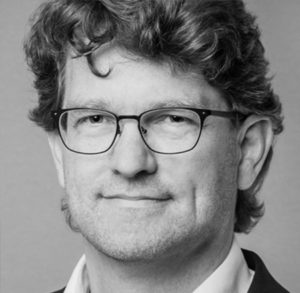
Thomas Wilken
Subproject: RESOURCES
wilken@igs.tu-bs.de
Institute for Building Services and Energy Design
TU BRAUNSCHWEIG
Prof. Elisabeth Endres
Mühlenpfordtstr. 23 10.OG
Braunschweig, Germany
![]() igs@igs.tu-bs.de
igs@igs.tu-bs.de
The Institute for Building and Solar Technology teaches and researches at the interface of passive and active building components in architecture. The aspects of building physics and materiality of buildings as well as technical building equipment and energy supply as adjusting screws of climate-neutral building are the focus of the considerations. The aim of the applied building research is to develop strategies for districts and buildings that create sustainable living space with robust construction methods and simple, low-tech systems. The focus is on the simplicity of the systems through a holistic view of facade design and quality, technical supply and networks in order to achieve durability and a high degree of recyclability within the lifecycle of the materials. In addition to research on CO2 neutrality in construction and operation at the building and urban level, as well as strategies to generate indoor climates at the macro- and micro comfort level with low-tech concepts, the institute focuses on the methodology of planning processes with the aim of developing robust and sustainable buildings.
Institute for Engineering Design
TU BRAUNSCHWEIG
Prof. Dr.-Ing. Thomas Vietor
Hermann-Blenk-Str. 42
Braunschweig, Germany
![]() ik@tu-braunschweig.de
ik@tu-braunschweig.de

Prof. Dr.-Ing. Thomas Vietor, Principle Investigator
Director of IK
SP Lead: MOBILITY

Dr.-Ing. Weijun Lu
EAST-Cities CDHK Office Head
Subproject: MOBILITY
weijun.lu@tu-braunschweig.de
Institute for Engineering Design
TU BRAUNSCHWEIG
Prof. Dr.-Ing. Thomas Vietor
Hermann-Blenk-Str. 42
Braunschweig, Germany
![]() ik@tu-braunschweig.de
ik@tu-braunschweig.de
Every technical system has to meet a variety of physical, human, economic and normative requirements. The aim of the research at Institute of Engineering Design is to provide procedures, methods and tools for the development of modern products that meet these diverse requirements. We pursue our research focus in the work groups of Integrated Product Development (Planning and design of products and their generations; I4.0-Technologies and assessment of solutions), Vehicle Concepts (Entire vehicle concepts and mobility applications; Battery integration and system development), Lightweight and Multi-Material Design (Development of design methods for multi-material utilization; Development of optimization tools and analysis methods for material-hybrid-component concepts), Additive Manufacturing (Development of design methods for additive manufacturing; Computer-aided design).
Institute for Sanitary and Environmental Engineering
TU BRAUNSCHWEIG
Prof. Dr. -Ing. Thomas Dockhorn
Pockelsstr. 2a
Braunschweig, Germany
![]() isww@tu-braunschweig.de
isww@tu-braunschweig.de

Prof. Dr. -Ing. Thomas Dockhorn, Principle Investigator
Director of ISWW
SP Lead: WATER

Sybille Karwat
Subproject: WATER
s.karwat@tu-braunschweig.de
Institute for Sanitary and Environmental Engineering
TU BRAUNSCHWEIG
Prof. Dr. -Ing. Thomas Dockhorn
Pockelsstr. 2a
Braunschweig, Germany
![]() isww@tu-braunschweig.de
isww@tu-braunschweig.de
The Institute for Sanitary and Environmental Engineering deals with the three main topics: Water, Sanitation and Environmental Protection. In teaching, lectures are offered on issues of drinking water treatment, wastewater and rainwater collection, wastewater treatment and sewage sludge treatment. They also deal with wastewater recycling, biogas production, nutrient recovery and material flow management and, last but not least, with environmental protection issues. Within the scope of their research, innovative processes for the optimization of advanced wastewater treatment as well as future-oriented processes of sewage sludge treatment and utilization are the main focus of their work. A further focus is on the further development of ideas and processes for nutrient recovery and energy recovery as well as material flow management.
Institute of Machine Tools and Production Technology
TU BRAUNSCHWEIG
Prof. Dr.-Ing. Christoph Herrmann
Langer Kamp 19b
Braunschweig, Germany
![]() iwf-braunschweig@tu-braunschweig.de
iwf-braunschweig@tu-braunschweig.de

Prof. Dr.-Ing. Christoph Herrmann, Principle Investigator
Director of IWF
Director of Fraunhofer Institute for Surface Engineering and Thin Films IST
SP Lead: PRODUCTION

Lennart Büth
Subproject: PRODUCTION
l.bueth@tu-braunschweig.de

Dr.-Ing. Mark Mennenga
Subproject: PRODUCTION
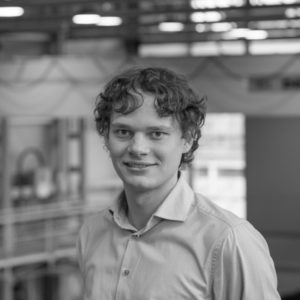
Max Juraschek
Subproject: PRODUCTION
m.juraschek@tu-braunschweig.de
Institute of Machine Tools and Production Technology
TU BRAUNSCHWEIG
Prof. Dr.-Ing. Christoph Herrmann
Langer Kamp 19b
Braunschweig, Germany
![]() iwf-braunschweig@tu-braunschweig.de
iwf-braunschweig@tu-braunschweig.de
The Chair of Sustainable Manufacturing & Life Cycle Engineering provides a wide range of core competencies in the fields of Sustainability in Production and Life Cycle Engineering. We developed the concept of Total Life Cycle Management which serves as framework for our research and education activities which take place in close cooperation with industry.
The chair is part of the Institute of Machine Tools and Production Technology and we are embedded in the Technische Universität Braunschweig. Due to the global scope and complexity of our research areas, international cooperation is an essential issue for us. As a major cornerstone of that we form the Joint German-Australian Research Group “Sustainable Manufacturing and Life Cycle Engineering together with the Life Cycle Engineering and Management Research Group of the University of New South Wales in Sydney, Australia.
Institute of Transport, Railway Construction and Operation
TU BRAUNSCHWEIG
Prof. Dr.-Ing. Thomas Siefer
Pockelsstraße 3
Braunschweig, Germany
![]() ive@tu-bs.de
ive@tu-bs.de

Prof. Dr.-Ing. Thomas Siefer, Principle Investigator
Director of IVE
SP Lead: MOBILITY

Nina Schmidt
Subproject: MOBILITY
nina.schmidt@tu-braunschweig.de
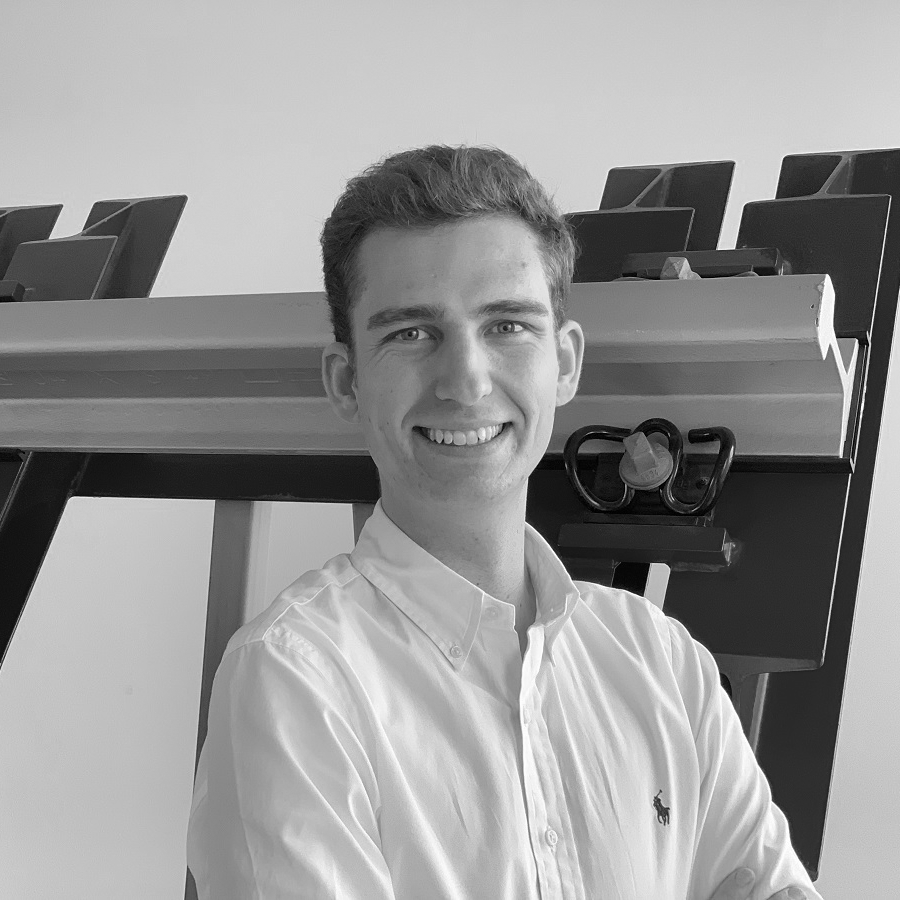
Jan Peter Heemsoth
Subproject: MOBILITY
j.heemsoth@tu-bs.de
Institute of Transport, Railway Construction and Operation
TU BRAUNSCHWEIG
Prof. Dr.-Ing. Thomas Siefer
Pockelsstraße 3
Braunschweig, Germany
![]() ive@tu-bs.de
ive@tu-bs.de
Integration, efficiency and competitiveness of the railway system determines the work of Institute for Transport, Railway Construction and Operation (IVE) in the fields of research, teaching and consulting.
Scientific employees of various disciplines develop system and special detail solutions for public and private customers.
The international orientation of IVE enables the synthesis of national and international experience to the benefit of our customers and students. National and international co-operations (networking) enable processing of an extraordinary wide range of subjects from the fields of transport and railway engineering.
Results from research and consulting are applied in the education of future generations of scientists.

GESIS – Leibniz Institute for the Social Sciences, Cologne
Prof. Dr.-Ing. Stefan Dietze
Unter Sachsenhausen 6-8

Prof. Dr. Stefan Dietze, Principle Investigator
Department Head of WTS at GESIS
SP Lead: DATA

Katarina Boland
Subproject: DATA
Katarina.Boland@gesis.org

GESIS – Leibniz Institute for the Social Sciences, Cologne
Prof. Dr.-Ing. Stefan Dietze
Unter Sachsenhausen 6-8
GESIS is the largest European infrastructure institute for the Social Sciences and provides data, services, infrastructure and training for all stages of the research cycle. With more than 300 employees at two locations (Mannheim and Cologne) GESIS provides widely used research data portals and promotes open science. The department “Knowledge Technologies for the Social Sciences” conducts research at the intersection of data science, human-computer interaction, knowledge graphs and information retrieval, aimed at interpreting, integrating and sharing heterogeneous research data on the Web. Research is applied as part of innovative research data infrastructures to facilitate open and usable access and reuse of research data
College of Computer Science and Engineering
CHONGQING UNIVERSITY OF TECHNOLOGY
Prof. Dr. Xiaofei Zhu
No.69 Hongguang Avenue, Banan District
Chongqing, China
![]() zxf@cqut.edu.cn
zxf@cqut.edu.cn
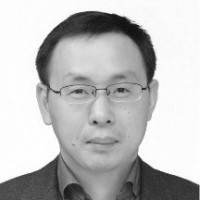
Prof. Dr. Xiaofei Zhu, Principle Investigator
SP Lead: DATA
College of Computer Science and Engineering
CHONGQING UNIVERSITY OF TECHNOLOGY
Prof. Dr. Xiaofei Zhu
No.69 Hongguang Avenue, Banan District
Chongqing, China
![]() zxf@cqut.edu.cn
zxf@cqut.edu.cn
Institute of Advanced Manufacturing Technology
TONGJI UNIVERSITY
Prof. Dr. Weimin Zhang
Cao An Gonglu 4800, Jiading
Shanghai, China
![]() iamt@tongji.edu.cn
iamt@tongji.edu.cn

Prof. Dr. Weimin Zhang, Principle Investigator
SP Lead: PRODUCTION
Institute of Advanced Manufacturing Technology
TONGJI UNIVERSITY
Prof. Dr. Weimin Zhang
Cao An Gonglu 4800, Jiading
Shanghai, China
![]() iamt@tongji.edu.cn
iamt@tongji.edu.cn
The School of ME has long enjoyed a reputation as being one of the best engineering schools in the country with the faculty, staff and students engaged in leading-edge research that addresses the science and technological needs of a rising economy and makes the world a better place for all. Over the past few years the School has successfully competed against other research institutions in China to win a number of high-profile research projects in the area of mechanical and power & energy engineering. In recognition of its quality of research, several of the Schools research institutes have been awarded the status of State Key Laboratories.
School of Automotive Engineering
TONGJI UNIVERSITY
Prof. Dr.-Ing. Tong Zhang
Cao An Road 4800, Jiading
Shanghai, China
![]() tzhang@tongji.edu.cn
tzhang@tongji.edu.cn
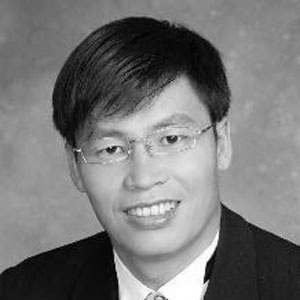
Prof. Dr. Lijun Zhang, Dean
School of Automotive Engineering
SP Lead: MOBILITY

Prof. Dr. Tong Zhang, Principle Investigator
SP Lead: MOBILITY
School of Automotive Engineering
TONGJI UNIVERSITY
Prof. Dr.-Ing. Tong Zhang
Cao An Road 4800, Jiading
Shanghai, China
![]() tzhang@tongji.edu.cn
tzhang@tongji.edu.cn
The College of Automotive Engineering was formally established in the Shanghai International Auto City in Jiading District on April 28th 2002. It was founded by the merger of the Automotive Engineering Department, New Energy Center of Automotive Engineering and the College of Automobile Marketing and Management in accordance with the requirements of the Shanghai International Auto City. The College aims at becoming an open and international college with a progressive, advanced curriculum. It provides people with knowledge of engineering, marketing and management as well as technology support for the development of the Shanghai International Auto City and the country’s automobile industry.
There are sixty-four staffs in the College, of who nineteen are full professors, sixteen associate professors and thirteen lecturers. The College offers five Bachelor’s degree programs, three Master degree Programs and two PhD degree programs to 730 full-time undergraduate students, 124 Master degree students, and 27 PhD students. There are eleven post-doctoral researchers in the postdoctoral mobile research station.
School of Transportation Engineering, Tongji University
TONGJI UNIVERSITY
Prof. Dr.-Ing. Keping Li
Prof. Dr.-Ing. Ruihua Xu
Cao An Road 4800, Jiading
Shanghai, China
![]() keping_li@vip.163.com
keping_li@vip.163.com
![]() rhxu@tongji.edu.cn
rhxu@tongji.edu.cn

Prof. Dr. Ruihua Xu, Principle Investigator
SP Lead: MOBILITY
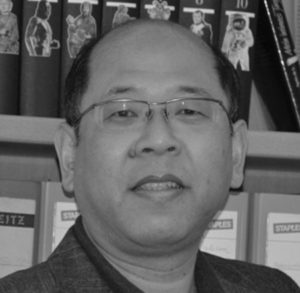
Prof. Dr. Keping Li, Principle Investigator
SP Lead: MOBILITY

Assoc. Prof. Dr. Xiaolei Zou
Subproject: MOBILITY
School of Transportation Engineering, Tongji University
TONGJI UNIVERSITY
Prof. Dr.-Ing. Keping Li
Prof. Dr.-Ing. Ruihua Xu
Cao An Road 4800, Jiading
Shanghai, China
![]() keping_li@vip.163.com
keping_li@vip.163.com
![]() rhxu@tongji.edu.cn
rhxu@tongji.edu.cn
One hundred years of Tongji University, one hundred years of College of Transportation Engineering. As the most comprehensive College integrated with all related disciplines in the field of land transport in China, the College of Transportation Engineering of Tongji University consists of five departments and the Key Laboratory of the Ministry of Education, Traffic and Transportation Industry Collaborative Innovation Platform, Engineering Research Centers of the Ministry of Education and other institutions.
The College has the National Key Primary Discipline of Traffic and Transportation Engineering and possesses the doctorate awarding authority and post-doctoral research station of the primary discipline. Also, it sets up positions for Yangtze River scholars distinguished professor for highway and railway engineering, traffic information engineering and control. The graduate majors of traffic and transportation engineering, the undergraduate majors of traffic engineering, transportation engineering and logistics engineering were recognized in the first round of “The Plan of Excellent Engineer Education” launched by the Ministry of Education. At present there are more than 850 enrolled undergraduate students and 700 graduate students.

UNEP-TONGJI Institute of Environment for Sustainable Development
TONGJI UNIVERSITY
Assoc. Prof. Dr. Hongtao Wang
Assoc. Prof. Dr. Xin Wang
No.1239 Siping Road, Yangpu
Shanghai, China
![]() hongtao@tongji.edu.cn
hongtao@tongji.edu.cn
![]() xin_wang@tongji.edu.cn
xin_wang@tongji.edu.cn

Assoc. Prof. Dr. Xin Wang, Principle Investigator
Deputy Dean UNEP-TONGJI IESD
SP Lead: RESOURCES
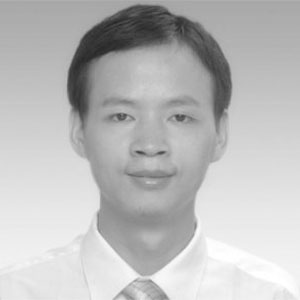
Assoc. Prof. Dr. Hongtao Wang, Principle Investigator
SP Lead: WATER

UNEP TONGJI Institute of Environment for Sustainable Development
TONGJI UNIVERSITY
Prof. Dr. Hongtao Wang
Prof. Dr. Xin Wang
No.1239 Siping Road, Yangpu
Shanghai, China
![]() hongtao@tongji.edu.cn
hongtao@tongji.edu.cn
![]() xin_wang@tongji.edu.cn
xin_wang@tongji.edu.cn
The UNEP-Tongji Institute of Environment for Sustainable Development (IESD) was jointly established by United Nations Environment Programme (UNEP) and Tongji University (Tongji). At the ceremony, Dr. Klaus Töpfer, by the time the Under- Secretary-General of UN and the Executive Director of UNEP, and Prof. Qidi Wu, former President of Tongji University, signed a Letter of Agreement on May 9, 2002. Mr. Zhenhua XIE, the former Minister of the State Environmental Protection Agency of China, Mr. Zheng HAN, and Mayor of Shanghai attended the agreement signing ceremony. Mr. Geping QU, former Chairman of Environment and Resources Committee, Standing Committee of National People’s Congress of China, sent a letter of congratulations to the Institute. Dr. Klaus. Töpfer, Mr. Zhenhua XIE, Mr. Zheng HAN, and Prof. Qidi WU gave speeches. A press conference was held after the ceremony. The establishment of the Institute received worldwide attention.
Implementation and Regional Partners
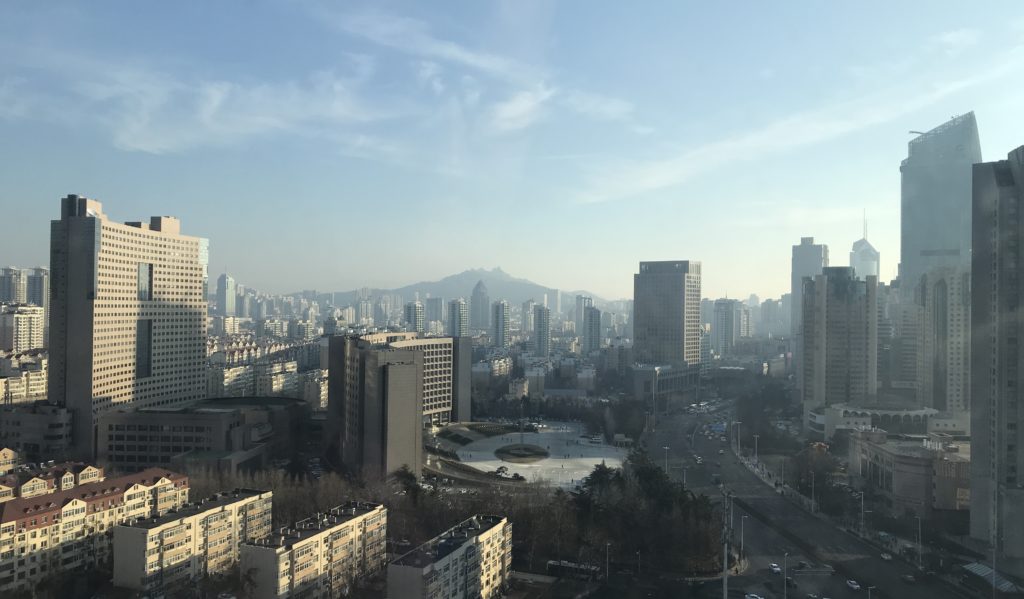
Qingdao City Hall

Qingdao Surveying and Mapping Institute
Zhang Zhihua, Director
189 Shandong Road
Shibei Qingdao City, China
pmo7eead1.sz.wmcom.net

Zhang Zhihua
Director of QSMI
SP Lead: DATA, TOPOI
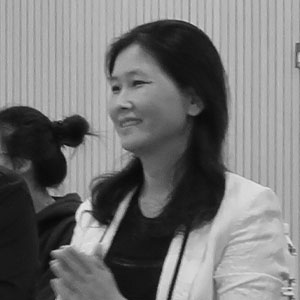
Ding Penghui
Vice Director of QSMI
Subproject: DATA, TOPOI
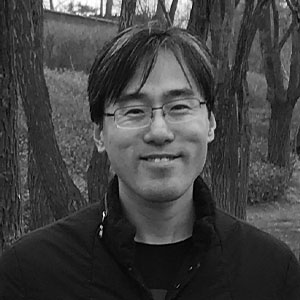
Qiao Xin
Subproject: DATA, TOPOI

Qingdao Surveying and Mapping Institute
Zhang Zhihua, Director
189 Shandong Road
Shibei Qingdao City, China
pmo7eead1.sz.wmcom.net
Qingdao Surveying and Mapping Institute was founded in September 1951. It is a national engineering survey comprehensive class A, surveying and mapping class A, foundation and foundation engineering construction first class. Additionally, QSMI is responsible for the construction, maintenance and use of the city’s basic geographic information system, and is responsible for the promotion and application of new technology for the city’s basic geographic information system. QSMI also undertakes Emergency geographic data standard formulation, collection and integration, dynamic update, on-site surveying and mapping and data release responsibilities, providing surveying and mapping geographic information support for emergency rescue, command decision-making, and post-disaster reconstruction of the city ’s emergency and major events. The institute is also responsible for the integration, update, management and maintenance of the basic geographic information data of the West Coast New District, and provides technical guarantee for the construction and service of the geographic information platform of the West Coast New District.

Qingdao Urban Planning and Design Institute
Prof. Dr. Song Jun
55 Xianggang Xi Rd.
Shibei Qingdao City, China
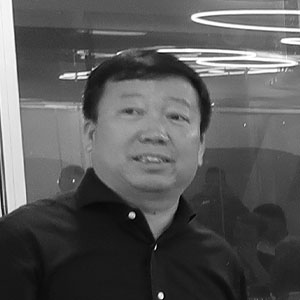
Prof. Dr. Song Jun
Director of QUPDI
SP Lead: TOPOI
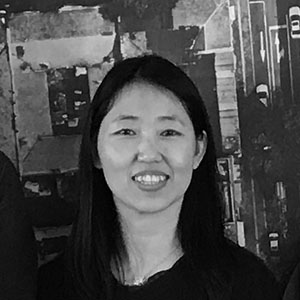
Lianli Yu
Planning Department Head of QUPDI
SP Lead: TOPOI
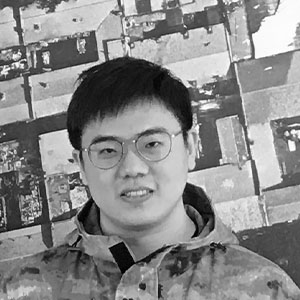
Tianyi Chen
Head of Big Data Department
SP Lead: TOPOI, DATA

Qingdao Urban Planning and Design Institute
Prof. Dr. Song Jun
55 Xianggang Xi Rd.
Shibei Qingdao City, China
Qingdao Urban Planning and Design Institute was established in 1981 and is affiliated to Qingdao Municipal Natural Resources and Planning Bureau. A comprehensive planning and design research unit with Class A qualification. It is mainly responsible for the organization and preparation of land and space planning, undertakes the planning preparation tasks and research demonstrations of major planning projects entrusted by the municipal government, implements the evaluation of planning preparation results, conducts research on planning preparation methods, and provides information technology services for urban and rural planning.
In more than 30 years of exploration, practice and innovation, our institute adheres to leading the development of the industry with scientific planning, adhering to the concept of harmony between man and nature, striving to improve and improve the quality of the city, in order to accelerate the construction and development of a modern, dynamic, fashionable international metropolis.

Sino-German Eco Park
Qingdao, China
pengqin@sgep.cn
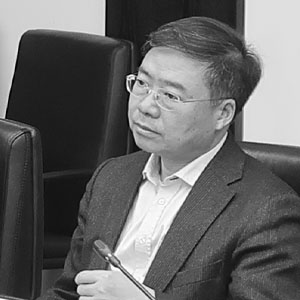
Prof. Dr. SHEN Lei
Director of SGEP
Subproject: PRODUCTION

WANG Weiqun
Director of Planning and Construction, SGEP
Subproject: PRODUCTION
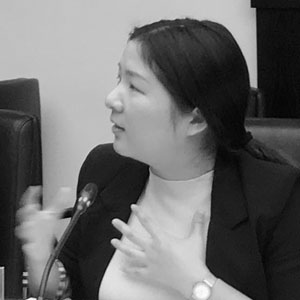
Peng Qin
Investment Promotion Office
Subproject: PRODUCTION

Sino-German Eco Park
266432 Qingdao, China
pengqin@sgep.cn
Qingdao International Economic Cooperation Zone is located in the West Coast New Area, Qingdao City, Shandong Province in Northeast China. The Zone, with a planned area of 11.6 square kilometers and part of the State Council-approved Shandong Pilot Free Trade Zone, believes in better life through eco-friendly and intelligent development and higher-quality development through opening up and integration, pursues green and sustainable development and strives to build an Eco-friendly, intelligent and open community of shared interests, so as to create an idyllic environment and wonderful life for all enterprises and residents.
This Zone has grown into an important economic engine for Qingdao West Coast New Area, a major featured functional zone in Qingdao, a prominent international cooperation zone in Shandong, and a forerunner in the opening-up of China. The Zone has won a raft of honors such as the UN Sustainable City and Human Settlements Award and China Human Settlements and Environment Award. It has been approved by the Standardization Administration of China to build the first National Comprehensive Standardization Demonstration Zone in China. It is a Pilot Zone for the National Smart City Initiative approved by the Ministry of Housing and Urban-Rural Development, a National Green Manufacturing International Innovation Park approved by the Ministry of Science and Technology, and a National New Energy Demonstration Park approved by National Energy Administration. It has also been selected as the first pilot zones of low carbon city, smart city, and green ecological demonstration area; one of the first new energy demonstration zones; one of the first intelligent manufacturing demonstration zones, etc.

energeydesign Shanghai
Yangpu, Shanghai, China

Prof. Dr. Yanping Zhou
Subproject: RESOURCES

Hans Niemann
Subproject: RESOURCES

energeydesign Shanghai
Yangpu, Shanghai, China
We are a Shanghai-based engineering and consulting firm for low-energy, high functionality and optimal cost solutions for the built environment, district, industrial process. We work as engineers and specialized design consultants in collaboration with professional design teams for our clients. We provide services towards low carbon solutions with high functional performance and with optimized cost on a high level of sustainability. Coming from Germany with a background of nearly 30 years professional experience, energydesign entered China in 2008 and keep contributing to provide engineering and consulting services in China and other Asian countries. energydesign has pioneered advanced technologies and approaches towards sustainable design, building and development (such as DGNB certification, passive house design and integrated energy concepts) in China.

German Sustainable Building Council
Johannes Kreißig
Tübinger Str. 43
Stuttgart, Germany
info@dgnb.de

Johannes Kreißig
Managing Director
Subproject: RESOURCES

Dr Stephan Anders
Subproject: RESOURCES

German Sustainable Building Council
70178 Stuttgart, Germany
info@dgnb.de
At the heart of the DGNB organization lies its association comprising approximately 1,200 members. It’s these members who make the DGNB Europe’s biggest network for sustainable building. These members also allow the association to reflect the interests of the entire building and property industry value chain. So they include architects, engineers, construction planners and consultants, but also project managers, development managers, investors, building contractors and the providers of building services. Then there are local authorities and trade associations, as well as the producers of building materials and companies from other sectors of industry. These members may not necessarily see construction as their core business, but they do promote sustainable building concepts in their own properties. Our members range from individuals working in an office to global corporations.
The association works in partnership with numerous domestic and international organisations, also supporting a wide variety of initiatives that promote more sustainability in the environment we build around ourselves. For example, the DGNB is the official German representative of the World Green Building Council. As a non-governmental organisation, the DGNB acts independently and is not swayed by the current political climate. It does however work on a number of issues with various decision-makers in politics – on a federal, state and municipal level – in order to add weight to sustainability in public debate.
Chinesisch-Deutsche Hochschulkolleg
Tongji-Universität Shanghai
Chifeng Lu 50
200092 Shanghai
P.R. China
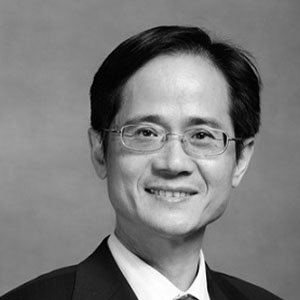
Prof. Dr. WU Zhihong
Vice Director

Herr Thomas Willems
Vice Director
Chinesisch-Deutsche Hochschulkolleg
Herr Thomas Willems
Tongji-Universität Shanghai
Chifeng Lu 50
200092 Shanghai
P.R. China
As a joint institution of the DAAD and Tongji University, the Chinese-German University College has been the most successful science exchange project between the two countries since it was founded in 1998. In a period of two to three years, students from all over China at the CDHK obtain a master’s degree in the faculties of electrical engineering, mechanical engineering, vehicle technology and economics (with commercial law). For some years now, more and more German students have been studying at the CDHK. Around 100 German master’s students are expected in winter semester 2014/15, two thirds of them in economics and industrial engineering.
The 23 endowed chairs, which are financed by internationally renowned companies, are unique. The donors provide excellent study conditions by equipping lecture rooms and laboratories and offer students extensive industrial contacts. In addition to industrial funds, the CDHK is funded by the Federal Foreign Office (AA).
Xiamen Rail Transit Group Co, Ltd
MOBILITY PROVIDER
Dr. Lei Shi
Xiahe Road 1236
Xiamen, China
Academic Partners
L3S Research Center
LEIBNIZ UNIVERSITY HANNOVER
Prof. Dr. Wolfgang Nejdl
Appelstr. 9a
Hannover, Germany
Chair for Data Knowledge &
Engineering
HEINRICH-HEINE-UNIVERSITÄT DÜSSELDORF
Prof. Dr. Stefan Dietze
Universitätsstr. 1
Düsseldorf
stefan.dietze@hhu.de
College of Architecture & Urban Planning
QINGDAO UNIVERSITY OF TECHNOLOGY
Prof. Dr. Xu Congbao, Dean
Fushun Rd. 11, Qingdao
266033, China
liuchong@qut.edu.cn
College of Computer Science
and Engineering
CHONGQING UNIVERSITY OF TECHNOLOGY
Prof. Dr. Xiaofei Zhu
No.69 Hongguang Avenue,
Banan District, Chongqing
zxf@cqut.edu.cn
College of Resources and Environmental Sciences
QINGDAO AGRICULTURAL UNIVERSITY
Assoc. Prof. Dr. Shirong Zhang
No. 700, Changcheng Road
Qingdao, China




